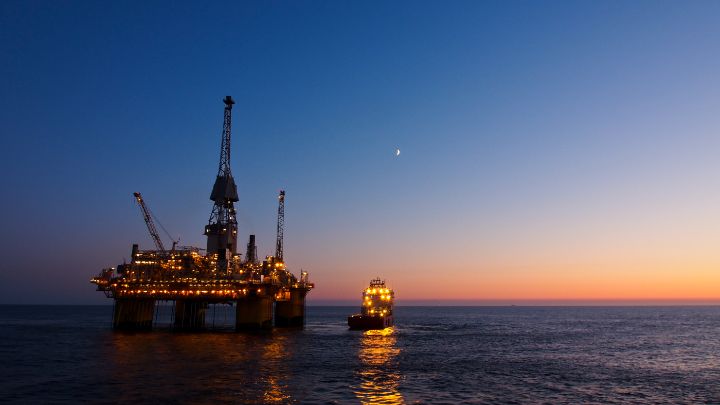“The solution to pollution is dilution”. A saying that was frequently used half a century ago, but since then scientific knowledge on toxicology has clearly shown that this solution does not work – pollutants can be persistent in the environment and bioaccumulate in the food chain. As a consequence, environmental policy and regulations have evolved away from “solution to pollution is dilution” approaches in order to protect life on earth.
However, some sectors appear to remain stuck in this old and tired twentieth century narrative, for example the maritime industry, which is notorious for polluting the oceans. While the shipping sector is quick to claim that “shipping is the least environmentally damaging mode of transportation”, have you ever encountered another transport mode that deliberately puts millions of tons of polluted water in the ocean? This is exactly what the global shipping fleet does, day in and day out. Discharges of sewage and wastewater from bathrooms and kitchens, toxins from paints, cargo residues, lubricating oil and wastewater from scrubbers all end up in the ocean, with detrimental impacts on marine life, and the millions of people who depend upon the ocean for their livelihoods and wellbeing.
What are scrubbers? In 2009 the International Maritime Organization (IMO), the UN’s maritime agency, took the wise decision to regulate Sulphur Oxides (SOx) and Nitrogen Oxides (NOx) emissions pumped into the air from the exhausts of ships. The IMO was moving to curb the health impacts on people living near ports and in coastal areas of air pollution caused by the massive ship diesel engines. It was calculated that more than 60,000 premature deaths were caused by air pollution from ships each year, so it was time to tackle this serious issue.
In order to reduce SOx emissions, ships can choose in practice between two options:
1. Reduce the sulphur content in fuel, or
2. Install and use Exhaust Gas Cleaning Equipment (EGCS) or scrubbers
At the time, some industry groups and member states, along with environmental groups were in favour of a worldwide shift to low sulphur distillate fuels, which are much cleaner than the Heavy Fuel Oil (HFO) used as standard in large ships. But the oil industry and some maritime parties suggested using EGCS or ‘scrubbers’ as an alternative, which would allow for the continued use of HFO provided the SOx was removed from the exhaust. The resulting compromise kept the ‘scrubber option’ open.
Scrubbers are meant to clean the exhaust gas, in particular removing the SOx. They do so by creating a ‘mist’ of seawater in the ship’s smokestack, thereby binding the SOx. In most scrubbers, which are of the ‘open loop’ type, this seawater with sulphur content is then flushed overboard. The mixture has a low pH value, so will add to acidification of the ocean, already under stress from excess CO2 uptake. And this is not the end of the story: apart from SOx, scrubbers take up all kinds of other substances from the exhaust, including heavy metals, nitrites and nitrates, and Polycyclic Aromatic Hydrocarbons (PAHs) which are highly carcinogenic. A genuine toxic cocktail is routinely dumped overboard via ships’ discharge piping.
Even when concerns about the possible impact of the discharge of toxins to the sea were raised, scrubbers were deemed an acceptable alternative to cutting HFO use and moving to cleaner fuels by IMO Members in 2009. Fifteen years later, the debate about this flawed approach is in full swing. Several recent scientific, peer-reviewed studies show that scrubber wastewater leads to cocktails of polluting substances including heavy metals and PAHs. One example is a Finnish study Environmental impacts of exhaust gas cleaning systems in the Baltic Sea, North Sea, and the Mediterranean Sea area which is part of the international EMERGE project. EMERGE is an innovative 4-year project funded by the European Commission under the Horizon 2020 programme, aiming at quantifying and evaluating the effects of potential emission reduction solutions for shipping in Europe; and developing effective strategies and measures to reduce the environmental impacts of shipping. The study shows that scrubbers produce large volumes of wastewater with a wide range of contaminants for discharge into the sea. Marine invertebrates were most affected by the pollution. For example, an impact was seen on sea urchin eggs at a dilution of one part scrubber wastewater to one million parts clean seawater. Key species such as mussels and crustaceans were also affected through reduced egg production and deformation of larvae. A study by Chalmers University found that many of the contaminants found in scrubber discharge water are included as (priority) hazardous substances under the EU Water Framework Directive (WFD, 2013) where EU Member States have agreed to take action to phase out these substances and to stop the emissions.
The authors of the Finnish study concluded: “Continued use of EGCS and high sulfur fossil fuels will delay the transition to more sustainable options. The investments made on EGCS enable ships to continue using fossil fuels instead of transitioning away from them as soon as possible as agreed in the 2023 Dubai Climate Change conference. Continued carriage of residual fuels also increases the risk of dire environmental consequences whenever accidental releases of oil to the sea occur.”
It is estimated that more than ten gigatons of scrubber wastewater is pumped overboard throughout the Ocean annually. In response, more than 45 coastal and port states around the globe have raised concerns and have started to regulate scrubber discharges in their coastal waters. The number of states on this list continues to grow: Denmark recently decided to ban scrubber discharges in their territorial seas next year, which means that a large majority of European states will have some sort of restriction in place. Although most stakeholders agree that coastal states have the right to regulate scrubber discharges in territorial waters, up to 12 nautical miles from the coastline, not everyone is yet convinced this holds true for the Exclusive Economic Zone (EEZ) from 12 to 200 nautical miles from the coastline. In response, states should have the right to tackle this type of pollution, in particular in sea areas with important ecosystem values and areas with multiple stressors such as acidification and underwater noise. The IMO must play an active role in protecting marine ecosystems and encourage regional scrubber discharge bans in ecologically, environmentally, and culturally significant areas, including the Arctic and ultimately ban scrubbers globally such as EEZs.
What would this mean for shipowners who have invested in scrubbers as an alternative to using cleaner fuel? It appears again in a scientific study that more than half of the global scrubber-fitted fleet reached economic break-even by the end of 2022, with a surplus of €4.7 billion. This study further shows that on more than 95% of the ships the cost of scrubbers was paid back within five years, so the maritime industry will not suffer more than a minor loss if scrubbers were banned. Meanwhile, the marine ecotoxicity damage cost from scrubber water discharge in the Baltic Sea Area over the period 2014–2022 is estimated in excess of €680 million – demonstrating that yet again private economic interests come at the expense of marine environmental damage.
The ocean has been used as a dumping ground for our wastes far too long and due to climate change is now acidifying rapidly. A number of international agreements charge governments and stakeholders with the protection of the ocean not least the UN Convention on the Law of the Sea and the Sustainable Development Goals (SDG) in particular SDG 14, which calls on governments to prevent and reduce marine pollution.
The Clean Arctic Alliance believes that it is time to say farewell to scrubbers, an outdated technology that is completely out of line with 21st century environmental standards for protection of the oceans. The best and ultimately only solution is to ban scrubbers worldwide and switch to cleaner fuels ahead of complete decarbonization and in the meantime we continue to push the IMO and its member states and international bodies, such as the EU, to roll out scrubber wastewater restrictions as soon as possible. At the end of September 2024, scrubbers will once again be on the agenda of MEPC 82, the environment committee of the IMO. That will be the time to take the serious decisions necessary for ending marine pollution from scrubbers.
Source: Hellenic Shipping News






